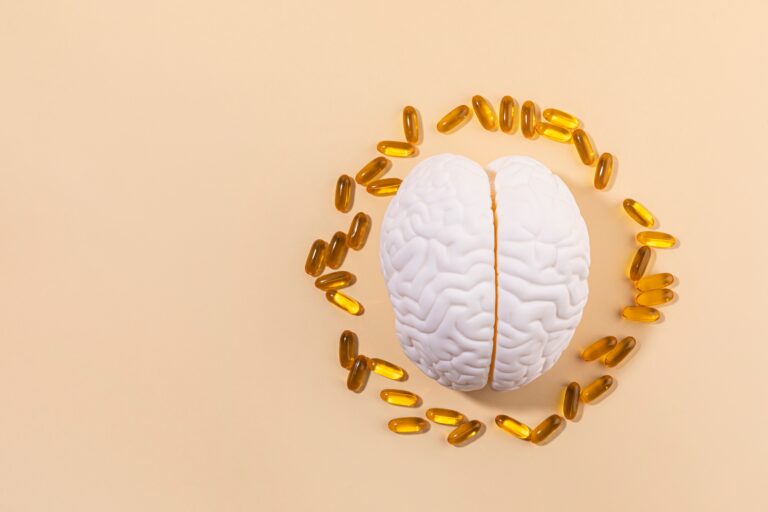Nutritional Support for Renal Health in Dogs and Cats
Summary
Kidney function often declines as animals age, in part due to loss of nephrons, the filtering unit of the kidney. Although kidney disease is a multi-factorial process, targeting pathways involved in its progression can help delay loss of kidney function. Incorporation of omega-3 fatty acids, vitamins, minerals, chlorophyll, and antioxidants can help support kidney health in both cats and dogs.
Kidney Function and Decline
The kidneys are essential organs in the body, filtering out waste and managing fluid balance.1 They also remove acid produced by body cells, help maintain proper levels of minerals and salts, and produce hormones that regulate blood pressure, red blood cell production, and bone health.1 As part of the urinary tract system, the kidneys adapt to a constantly changing environment. They must adjust to match excretion to intake, maintain proper electrolyte concentrations, blood pressure, and pH (acid-base balance). The kidneys also work in tandem with the liver and adrenal glands to regulate water balance.
Dogs and cats can experience progressive loss of kidney function due to the loss of nephrons, the filtering unit of the kidneys, due to aging, renal disease, or injury.1 Unfortunately, detecting kidney decline in the early stages can be difficult as clinical symptoms typically occur when over 70 percent of nephrons have lost their function. This results in the remaining nephrons increasing in size in order to compensate for the overall loss of function, which increases the pressure within the kidneys, called glomerular capillary pressure.2 This can lead to further renal dysfunction and nephron destruction, ultimately causing the kidneys to lose their ability to adapt.
Nutritional Targets
Proactively supporting the kidneys prior to clinical signs of kidney damage with good nutrition can help preserve kidney health. Additionally, nutritional support can help remaining nephrons preserve their adaptive ability and support overall kidney health in cats and dogs.
Protein Intake
Reducing protein intake may decrease the burden on the kidneys to remove nitrogenous waste produced from the metabolism of proteins. However, studies have produced conflicting results on protein restriction in animals with kidney conditions. Additionally, older animals, who often suffer from kidney conditions, may need higher protein intake due to increased protein requirements to compensate for decreased efficiency metabolizing protein and to maintain lean body mass during aging.2
Instead of reducing protein intake, it may be beneficial to restrict phosphorus intake through reduction of phosphorus-containing proteins. Adult dogs fed a phosphorus-restricted diet had a longer period of kidney function stability as well as improved survival, but there was no difference between those fed a high or low protein diet.2,3
Polyunsaturated Fatty Acids
The omega-3 polyunsaturated fatty acids (PUFAs) eicosapentaenoic acid (EPA) and docosahexaenoic acid (DHA) can be metabolized into specialized pro-resolving mediators that help resolve inflammation, a key pathway that contributes to the pathogenesis of renal failure.1,2 They may also be able to reduce pressure within the kidneys after nephron loss has started.2
Omega-3 PUFA supplementation (at a ratio of 1:5 omega-3:omega-6 fatty acids) was able to normalize glomerular capillary pressure to the level found in dogs with normal kidney function.4,5 There was also an additive effect when omega-3 supplements and antioxidants were administered, with the combined treatment showing the greatest ability to slow progression of chronic kidney disease in dogs.2,6
Micronutrients
Several vitamins can support renal health indirectly, by targeting the liver or processes that contribute to kidney health:
- Vitamin A is a potent regulator of genes involved in inflammation, liver function, and kidney development.
- The active form of vitamin B6, pyridoxal 5’-phosphate, is important in the liver and supports detoxification processes.
- Both vitamin B6 and niacin (vitamin B3) are involved in the synthesis of taurine, which plays a role in the conjugation of toxic compounds for removal from the body.
- Vitamin D deficiency may lead to chronic kidney disease so ensuring adequate intake of vitamin D can support kidney health.7
Other nutrients and bioactive compounds
Chlorophyll is a pigment found in plant cell walls that can support detoxification pathways by inducing specific enzymes which helps drive the elimination of potentially toxic substances from the body.8 Additionally, optimizing minerals involved in fluid balance and blood pressure, specifically sodium and potassium, can help support animals that are afflicted by kidney dysfunction.
Finally, soluble fiber may support renal health through its role in the removal of compounds from the body as part of normal digestion and excretion. Fiber also promotes the growth of beneficial bacteria in the gut which can increase excretion of nitrogen and urea without involving the kidneys.9
As bodies age, whether human, cat, or dog, some level of decline in kidney function is inevitable. The kidneys are a particularly important target for nutritional support because of their vital role in filtering waste products out of the blood and maintaining fluid balance.
Supplementing the diet of dogs and cats with anti-inflammatory omega-3 PUFAs, antioxidants, and micronutrients that help with detoxification and fluid balance, along with restricting phosphorus, can help support renal health throughout their lifespan.
- Panickar, K.S., Jewell, D.E. (2018). The Benefit of Anti-Inflammatory and Renal-Protective Dietary Ingredients on the Biological Processes of Aging in the Kidney. Biology, 7(4):45
- Sanderson, S.L. (2014). Nutritional Management of Renal Disease: An Evidence-Based Approach. Today’s Veterinary Practice,
- Stockman, J., Villaverde, C., Corbee, R.J. (2021). Calcium, Phosphorus, and Vitamin D in Dogs and Cats: Beyond the Bones. Vet Clin Small Anim, 51:623.
- Brown, S.A., Brown, C.A., Crowell, W.A., et al. (1998). Beneficial effects of chronic administration of dietary omega-3 polyunsaturated fatty acids in dogs with renal insufficiency. J Lab Clin Med, 131:447.
- Brown, S.A., Brown, C.A., Crowell, W.A., et al. (2000). Effects of dietary polyunsaturated fatty acid supplementation in early renal insufficiency in dogs. J Lab Clin Med, 135:275.
- Brown, S.A. (2008). Oxidative stress and chronic kidney disease. Vet Clin Small Anim, 38:157.
- Chacar, F.C., Kogika, M.M., Zafalon, R.V.A., Brunetto, M.A. (2020). Vitamin D Metabolism and Its Role in Mineral and Bone Disorders in Chronic Kidney Disease in Humans, Dogs and Cats. Metabolites, 10:499.
- Mishra, V.K., Bacheti, R.K., Husen, Z. (2011). Medicinal Uses of Chlorophyll: a critical overview. In: Chlorophyll: Structure, Function and Medicinal Uses, Hua Le and Elisa Salcedo, Eds., Nova Science Publishers, Inc., Hauppauge, NY 11788 (ISBN 978-1- 62100-015-0), pp.177-196.
- Cline, M.G. (2016). Nutritional Management of Chronic Kidney Disease in Cats & Dogs. Today’s Veterinary Practice, 58.







